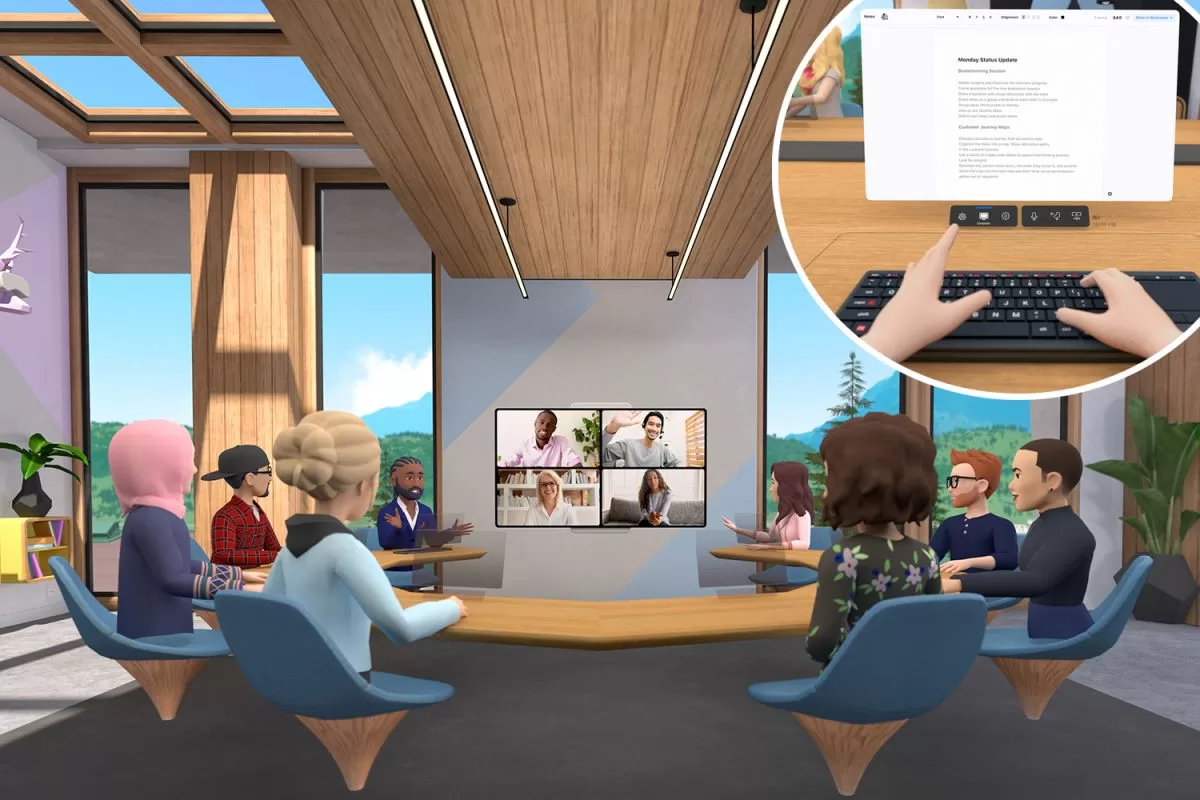Technology
Metaverse Dreams: Mark Zuckerberg’s Gamble on a Virtual Reality Future

Overview
In a not-so-distant past, the tech world was ablaze with talks of the metaverse, a virtual reality realm promising unparalleled immersion and engagement. Mark Zuckerberg’s ambitious endeavor, championed under Meta, formerly known as Facebook, sought to revolutionize the digital landscape. However, nearly two years on, the metaverse dream faces hurdles. Despite significant investments, Meta’s Reality Labs reports staggering losses. Horizon Worlds, the company’s venture, grapples with modest user numbers and graphics criticisms. This article delves into the challenges and unwavering belief in this virtual future.
In the era preceding ChatGPT’s emergence, the tech community was abuzz with a different topic altogether.
Recall the metaverse?

Metaverse Dreams: Mark Zuckerberg’s Gamble on a Virtual Reality Future
Now, let’s delve deeper into the challenges that Meta has encountered in their pursuit of the metaverse.
In a not-so-distant past, the tech world was ablaze with talks of the metaverse, a virtual reality realm promising unparalleled immersion and engagement. It was a vision championed by none other than Mark Zuckerberg, the billionaire at the helm of Meta, a company once known as Facebook.
“The defining quality of the metaverse will be a feeling of presence,” Zuckerberg proclaimed, marking a pivotal moment when Facebook officially became Meta in October 2021. “Feeling truly present with another person is the ultimate dream of social technology. That is why we are focused on building this. In the metaverse, you’ll be able to do almost anything you can imagine,” he enthused.
Yet, nearly two years later, Zuckerberg’s metaverse vision is encountering turbulence. In April, he found himself dispelling rumors of abandonment. “A narrative has developed that we’re somehow moving away from focusing on the metaverse,” he assured investors, “So I just want to say upfront that that’s not accurate.”
Fast forward to today, and Meta’s Reality Labs, the virtual and augmented reality arm, has seen staggering losses of $21 billion since last year. While long-term investment was anticipated, the concern lies in the paucity of evidence that this colossal gamble will pay off.
Horizon Worlds, Meta’s foray into the metaverse, is a game that allows users to explore various settings, from cafes to comedy clubs. However, with only 300,000 monthly users, it pales in comparison to the billions on Facebook and Instagram. Critics lament its emptiness and compare its graphics to a bygone era, a far cry from the lavish VR experience promised by Zuckerberg.
Even Meta’s virtual reality headsets, which have sold over 20 million units, face stiff competition from mainstream gaming consoles like Sony’s PlayStation 5, boasting a whopping 40 million units sold.
Zuckerberg remains undeterred, convinced that he is steering the world towards this new direction. “I can’t guarantee you that I’m going to be right about this bet,” he conceded, “I do think that this is the direction that the world is going in.”
As the company gears up for its annual VR event, Meta Connect, all eyes are on Zuckerberg. Speculations swirl around the unveiling of the Quest 3 headset and the transition of Horizon Worlds to mobile and desktop platforms, eliminating the need for a VR headset.
Undoubtedly, the metaverse remains a cornerstone of Meta’s vision, even as much of the tech world has seemingly moved on. In Zuckerberg‘s realm, the future is still virtual, and the journey towards the true metaverse continues, one investment at a time.
What is the metaverse?
For those unfamiliar with the concept, the “Metaverse” is a term that has been buzzing around the tech world, gaining momentum ever since Mark Zuckerberg‘s ambitious rebranding of Facebook to Meta. But what exactly is it? In its simplest form, the Metaverse can be envisioned as a 3D version of the internet. Picture a parallel digital realm, akin to the physical world, where users navigate and interact through personalized avatars. This immersive space, many experts believe, is the next evolutionary step for the internet, taking it beyond the realm of text, photos, and videos into a fully three-dimensional experience.
However, it’s worth noting that while discussions surrounding the Metaverse are rampant, it’s still an evolving concept, with experts debating on its exact nature and when it will truly come to fruition.
As the tech world eagerly anticipates Meta Connect, it’s clear that the metaverse remains a cornerstone of Mark Zuckerberg’s vision for the digital future. Despite the challenges and criticisms faced by Meta’s Reality Labs and Horizon Worlds, Zuckerberg‘s unwavering belief in the potential of the metaverse is palpable. He envisions a world where the feeling of true presence transcends physical boundaries, offering an unparalleled level of immersion and engagement.
The concept of the metaverse, a three-dimensional internet, has captured the collective imagination of the tech community. It promises a new era of digital interaction, where personalized avatars navigate a parallel digital realm. While it’s still an evolving concept, the potential for transformation is immense.
However, it’s not without its hurdles. Meta’s Reality Labs has reported significant losses, and Horizon Worlds, though promising, currently boasts a modest user base. Critics highlight concerns about graphics and engagement levels. Additionally, Meta’s virtual reality headsets face stiff competition from established gaming consoles.
Yet, Mark Zuckerberg remains undeterred, emphasizing that this is the direction the world is heading. The upcoming unveiling of the Quest 3 headset and the expansion of Horizon Worlds to mobile and desktop platforms are pivotal steps in Meta’s ongoing metaverse journey. These strategic moves demonstrate Meta’s commitment to making the metaverse accessible to a wider audience.
In a rapidly evolving tech landscape, Meta’s metaverse vision stands as a bold gamble, a daring venture into uncharted territory. The path forward may be challenging, but the potential rewards are monumental. Whether the metaverse will ultimately become the next frontier of digital interaction remains to be seen, but one thing is certain: the pursuit of this virtual future continues, one investment at a time. The tech world watches with bated breath, eager to witness the evolution of the metaverse and its impact on the way we connect, create, and explore in the digital realm.






















































